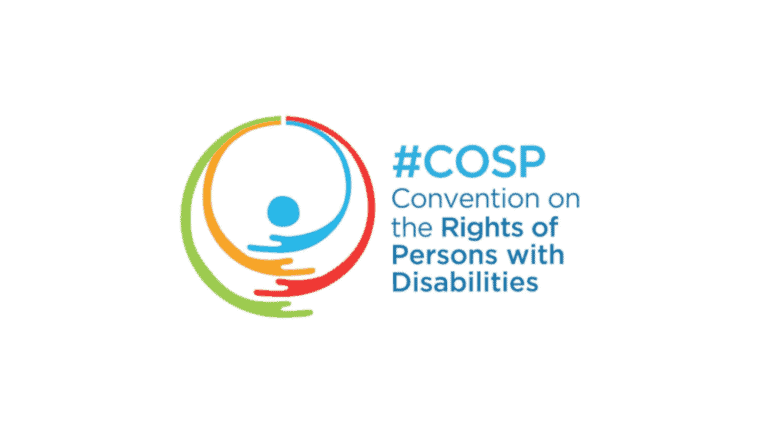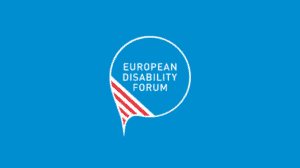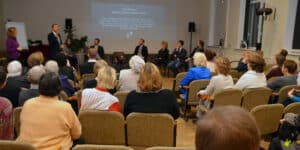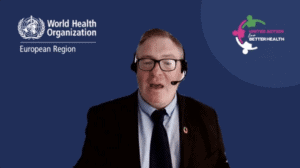COSP
EUD followed all three roundtables of the 16th session of the United Nations Conference of the State Parties to the CRPD (COSP) which was held at the United Nations (UN) headquarters in New York from 13-15th June 2023.
The 1st roundtable focussed on ensuring equal access to and accessibility of sexual and reproductive health for persons with disabilities. Ms. Maria Soledad Cisternas Reyes, Special Envoy of the Secretary General on Disability and Accessibility, discussed the model protocol on the maternity of women with disabilities which aims to facilitate the medical and practical aspects of childbirth. The legal basis of this protocol can be found in Article 6 CRPD.
We also heard from Ms. Leyla Sharafi, Global Disability Focal Point and Senior Advisor, UN Population Fund (UNFPA), who underlined UNFPA’s commitment to equitable access to sexual and reproductive rights for persons with disabilities. However, many women with disabilities continue to face barriers in this regard. For instance, studies show also that women with disabilities are at double the risk of sexual violence. Furthermore, people with disabilities are still affected by practices such as forced sterilization and non-consensual contraception. Importantly, for deaf people, the UNFPA is promoting the use of sign language interpretation for raising awareness on healthcare, sexual rights, and maternal care. Access to information and education is key to implement the rights of persons with disabilities.
The 2und Roundtable was held on the evolving topic of “digital accessibility for persons with disabilities”. The opening panellist, Mr. Chong Kwek Bin, Technology Analyst, SG Enable, Singapore, outlined the three key barriers preventing persons with disabilities from their right to full digital accessibility – 1. general lack of awareness and interest to achieve digital accessibility amongst key sectors; 2. front line staff are willing to improve digital accessibility of their products, however they are often constrained by the systems in which they work; 3. e-accessibility is a growing industry but few people can perform e-accessibility audits.
Next, Mr. László G. Lovászy, Senior Research Fellow, Faculty of International Relations and Diplomacy, University of Public Service, Hungary, highlighted the fact that we have yet to uncover full digital accessibility in our societies. To do so, Mr Lovászy pointed to international standardisation as crucial for the realisation of this. Moreover, Mr. Constantinos Stephanidis, President, National Accessibility Authority, Greece, stated that, today, access to technology means access to fundamental human rights e.g. health, privacy etc.
Ms. Roxana Widmer-Iliescu, Senior Coordinator for Digital Inclusion Development Bureau, ITU, outlined four aspects to achieve digital inclusion – access to broadband; affordability of internet services; accessibility through policies/strategies based on human-centred, smart design technologies; and the empowerment of all end users through technology. However, we need a holistic and intersectional approach, and not to continue to work in silos.
Finally, the 3rd roundtable was on “Reaching the under-represented groups of persons with disabilities”. Mr. Pawel Wdowik, Secretary of State, Ministry of Family and Social Policy, Poland, focused his intervention on outlining some of the measures Poland has taken to ensure the equal access and rights of refuges with disabilities from Ukraine arriving there. Mr Wdowik said that more than 1.4 million refugees have been registered for residency in Poland since the beginning of Russia’s war of aggression in Ukraine. He highlighted the support Poland has shown to all incoming Ukrainians, including persons with disabilities. For example, the State Fund for rehabilitation for persons with disabilities, started a programme specifically for Ukrainians with disabilities. Under this programme, people who aren’t registered as disabled in Poland, are able to gain immediate access to the required services, with 23,000 people availing of these provisions so far. In addition to this, explained Mr Wdowik, Ukrainians with disabilities can apply for immediate recognition of their disability status, and so far, 11,000 disability certificates for refugees from Ukraine with disabilities have been issued. These sort of measures are imperative for all refugees with disabilities, particularly to have immediate access to the required services.
Finally,Ms. Maryangel Garcia Ramos Guadiana, Executive Director, Women Enabled International, Mexico, stressed the need for women with disabilities to also be recognised as women with their own inherent dignity – stressing that this is not negotiable. In this way, she highlighted the importance of intersectionality when developing any policies and strategies to advance human rights.
The roundtables of the 16th session of COSP covered 3 important topics, all which EUD is committed to continue to monitor and engage with, in order to ensure that deaf people are guaranteed digital accessibility in all arenas of life, as well as their inherent dignity to be recognised irrespective of their disability nor their other intersecting identities.













